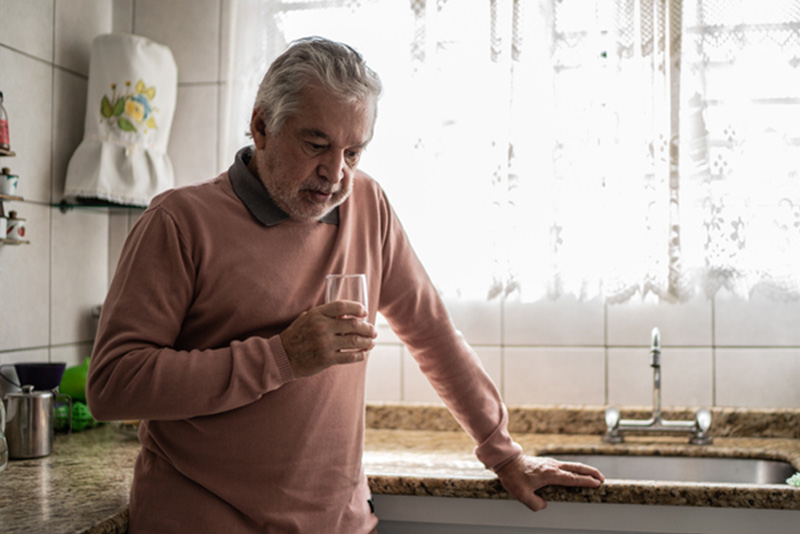
Following a cardiac event, it is important to understand the link between depression and heart disease.
Experiencing a heart attack changes life in an instant. What seemed important before the health crisis suddenly fades into the background, as the main concern becomes helping the damaged heart to heal. Life is then filled with adjusting to new medications, implementing dietary changes and an exercise regimen, following up with medical appointments and tests, all aimed at ensuring maximum physical health.
Yet it’s just as important to pay special attention to mental health throughout the healing process. While tending to all of the new to-dos, feelings of fear, frustration, anger, anxiety, and denial, among others, may settle in. It is easy to see how depression can manifest as well. As a matter of fact, the link between depression and heart disease has been well documented. Individuals with no history of depression are at risk to experience it after a heart condition, while people already struggling with depression are at a greater risk for heart problems.
Why Is Depression Common After a Heart Attack?
Cardiovascular illnesses may cause an individual to experience a variety of moods, including:
- Shame over lifestyle choices that may have brought about the issue
- Uncertainty about the future
- Low self-esteem
- Self-doubt and questions about self-identity
- Embarrassment over the need for help
- And others
These sorts of feelings lead to depression, which often affects the person’s capacity to recover fully from the heart attack, since they may:
- Feel unmotivated to follow their doctor’s orders
- Choose to self-medicate through smoking, unhealthy eating, alcohol, etc.
- Experience depression-related hormonal changes that may cause cardiac arrhythmia
- Develop especially sticky platelets that speed up hardening of the arteries
What Are the Symptoms of Depression?
Assess to determine if any of these warning signs of depression are present after a heart incident:
- Helplessness or hopelessness
- Changes in appetite or weight
- Loss of interest in once-loved activities
- Changes to sleeping habits
- Sluggishness or restlessness
- Difficulty with focusing, decision-making, or memory
If depression is suspected, speak with the physician as quickly as possible. Effective treatment plans are available.
How Home Care Can Help
Recuperating after a heart attack is challenging enough, but adding in the effects of depression can make it seem impossible. In-home care can assist in a variety of ways with both emotional and physical recovery, with services such as:
- Medication reminders to make sure meds are taken as prescribed
- Encouragement to stick to a prescribed exercise plan
- Planning and preparing heart-healthy meals
- Friendly companionship for conversations and engaging distractions to brighten each day
- Light housekeeping and laundry
- Grocery shopping and other errands
- Plus much more
Contact the team at Hearts at Home In-Home Care at 913-440-4209 to request additional resources to help someone with cardiovascular disease, depression, or any other chronic health issue, and to find out more about our in-home care services in Leawood, Lenexa, Mission Hills, and the surrounding areas.
